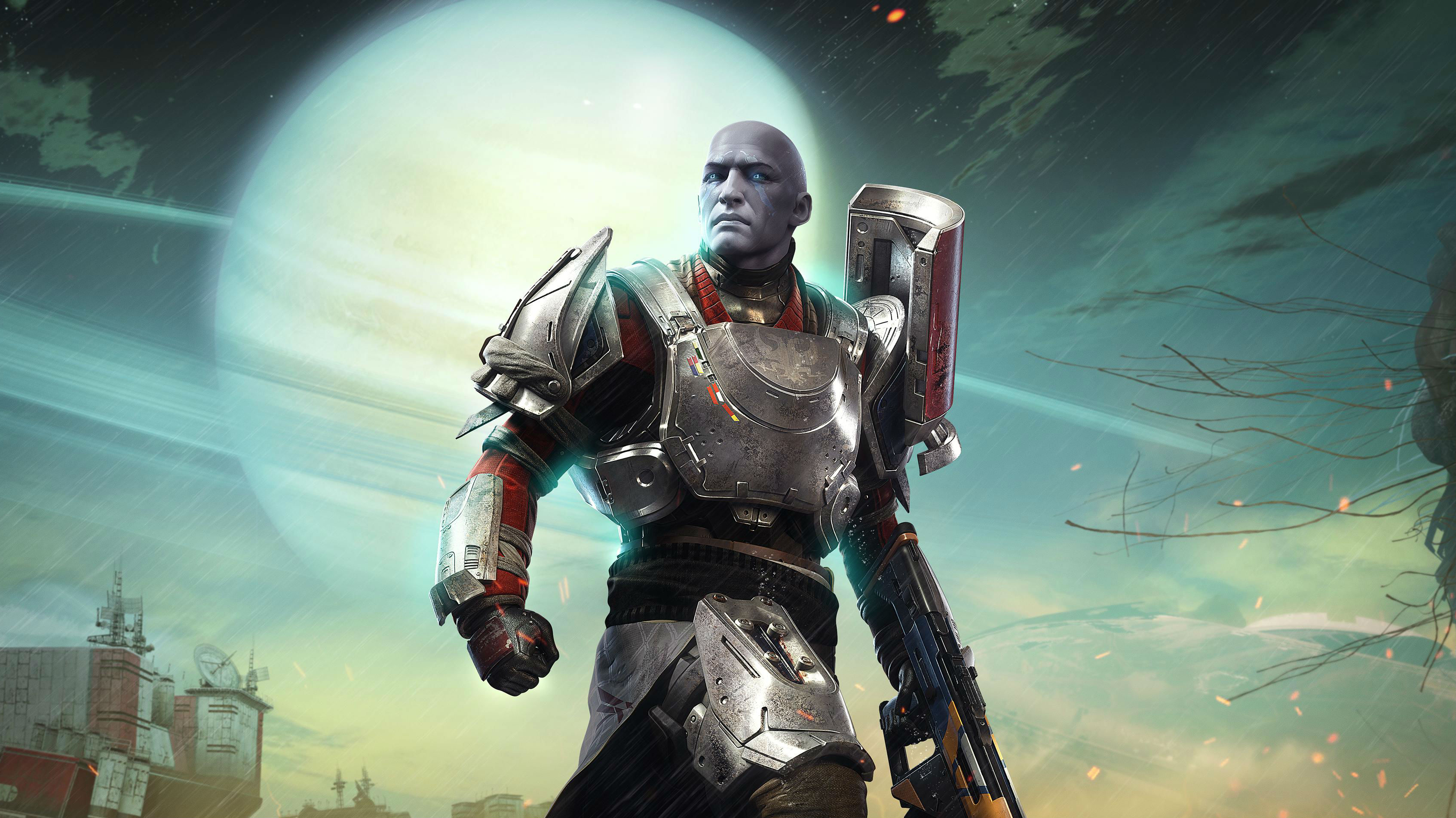
In the decade and a half I've been covering games, I can't recall a major studio which has a stranger relationship with its fans than Bungie. Every time I think Destiny is on track to completely deliver on its shared-world shooter promise, the studio fires a fusion rifle at its own feet. Design decisions which seem baffling from the outside are followed by inevitable community uproar, which intensifies until Bungie issues a vague mea culpa along the lines of 'we're listening, we'll do better.'
At least yesterday we got a detailed mea culpa in the form of a blog post outlining how Bungie intends to improve the game for its most passionate fans. And honestly, I'm sure Bungie has been listening and trying to do better. My impression is of a studio that avidly listens to criticism, even if the conversation can sometimes feel like shouting into a well.
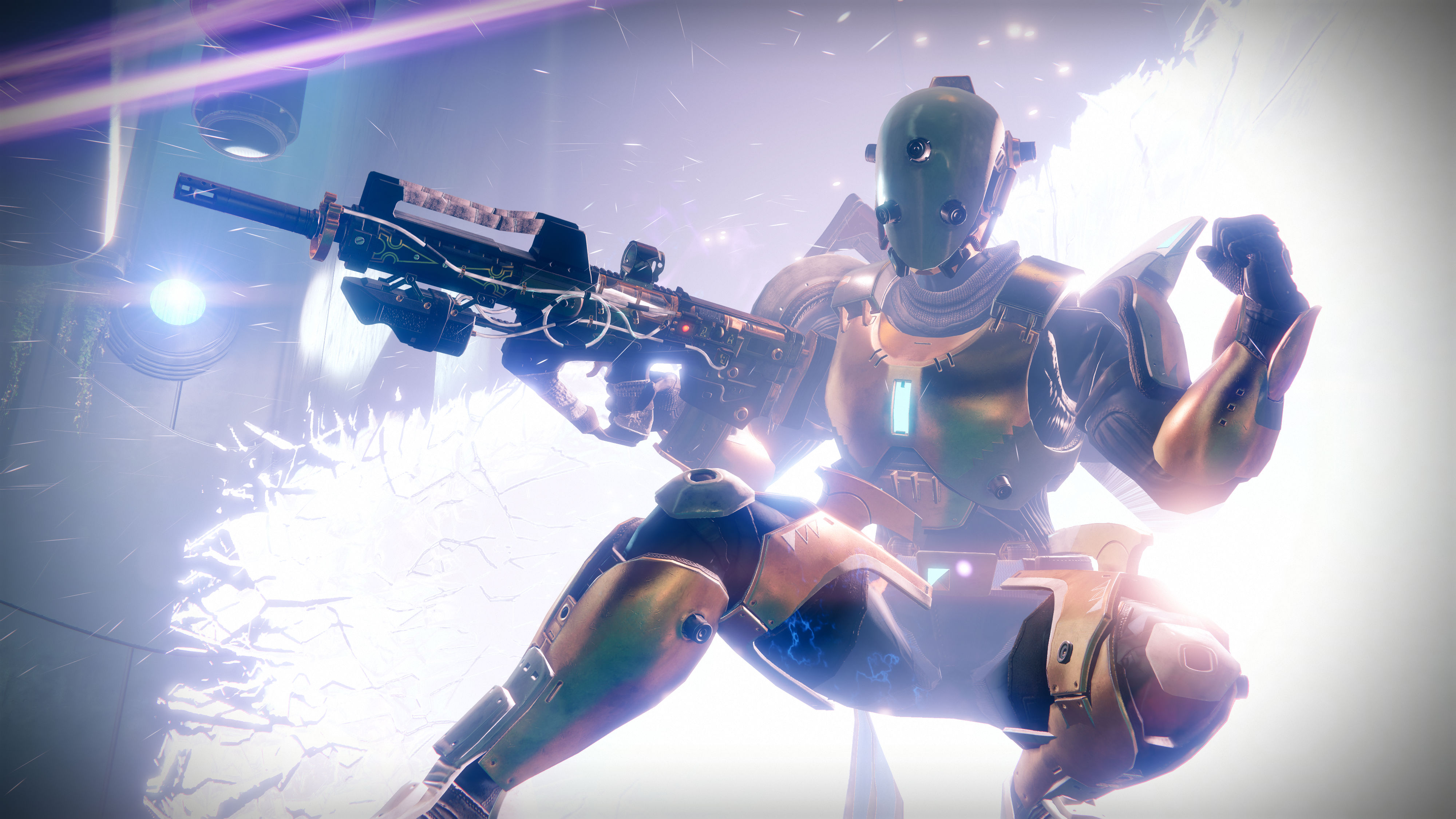
The second page of this feature breaks down the six biggest issues facing the endgame, and how Bungie plans to address some of them. If you want to read that now, go here.
The most recent example of a baffling design decision was the hidden XP throttling system, which Bungie had to abruptly turn off (during Thanksgiving break, to give you an idea of the urgency) after research by a dogged Redditor led to its exposure on this site and elsewhere. What's mind-boggling isn't that the system existed, because it makes some sense when you examine it, but that anyone at Bungie thought it wouldn't be discovered. Destiny 2 is played by millions, some of whom are nerdy enough to calculate weapon time-to-kill down to individual frames. It was always going to get sniffed out.
The XP debacle, along with a rising tide of community complaint about Destiny 2's endgame (or lack thereof), led to a Bungie blog post on Wednesday that admitted communication from the development team has been inadequate, and sought to allay fears about where the game is going. Originally, game director Luke Smith had announced on Twitter that he would be joined on stream by project lead Mark Noseworthy so that they could address player feedback (read: complaints), and map out future plans. That idea was swiftly nixed in favour of the blog post, presumably to avoid having two senior developers get roasted by chat, or risk making matters worse by misspeaking in a live broadcast environment.
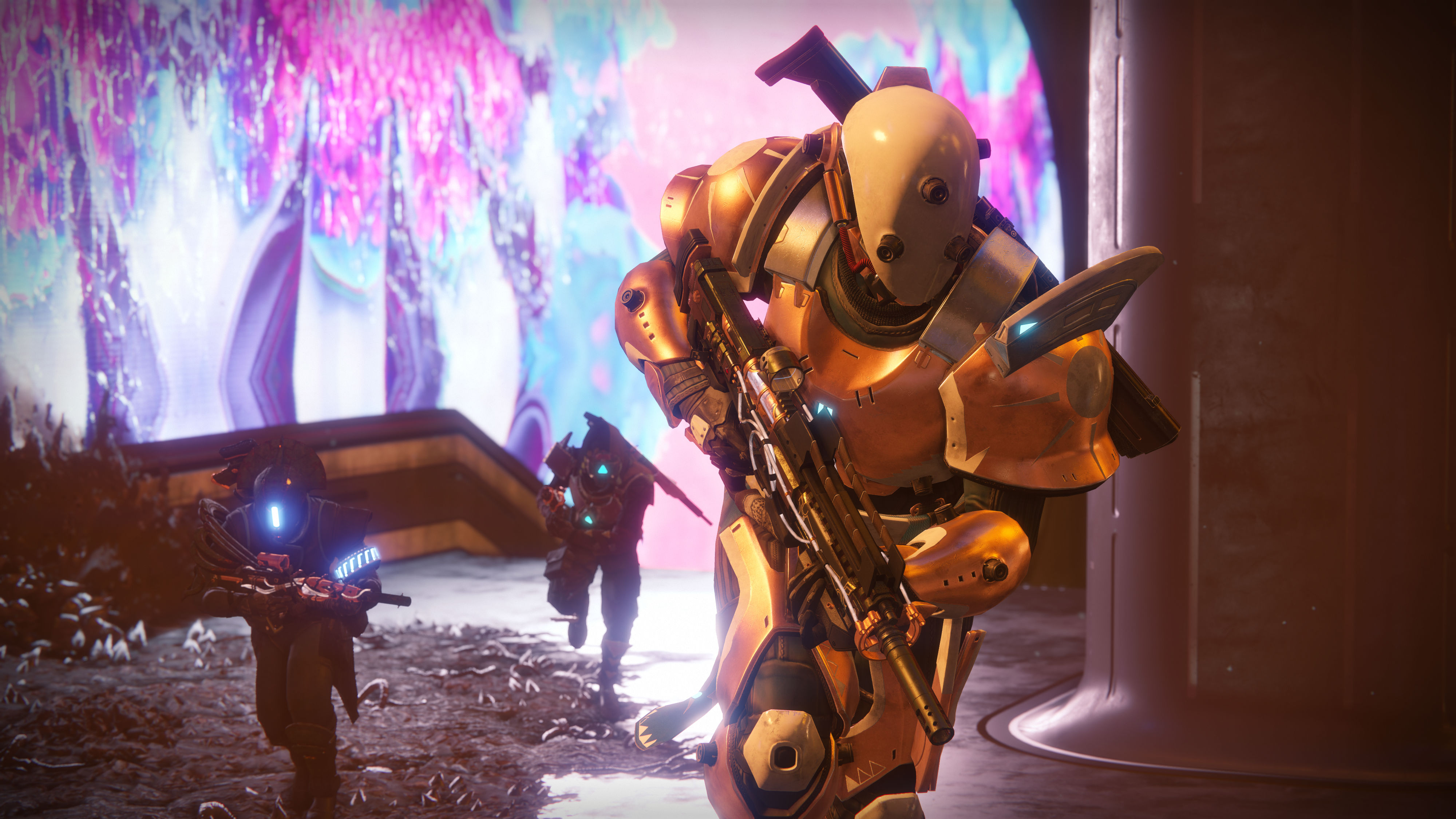
What's mind-boggling isn't that the system existed ... but that anyone at Bungie thought it wouldn't be discovered.
The good news is that the blog post put deadlines on many of the proposed solutions, and went into granular detail about how some will work. After so much silence, it legitimately felt shocking to have the studio speak to its players in such a clear voice. Not that any of this will feel surprising to those who've followed Destiny since the beginning, and have grown accustomed to the sporadic way Bungie communicates—a vacuum of information suddenly filled with a supernova of facts.
Sometimes, as with the secret Black Spindle mission from The Taken King, keeping things under wraps can have really cool results. (So much so that it's crazy to me that there appears to be no equivalent mission tucked away in Destiny 2.) But equally, being so secretive that players can go months without knowing whether updates are even on the way—as was the case after Rise of Iron—only leads to the salt piling up. Hopefully yesterday's post represents the start of a new era of openness, but I wouldn't bet your vault space on it yet.
What happened to 'if it isn't broken, don't fix it?'
To get a sense of how strange some of Bungie's design decisions can be, let's revisit the first game. We can forgive the botched launch on account of the whole thing being rewritten late in development. The moment which best encapsulates Destiny's self-destructive streak in my mind happened with the House of Wolves, a DLC expansion which raised the level cap. In order to bring your favourite exotic weapons up to par, players not only had to reacquire each item, but also had to re-earn the XP needed to activate their perk nodes.
Keep up to date with the most important stories and the best deals, as picked by the PC Gamer team.
It remains one of the most obnoxious pieces of design I can think of in terms of disrespecting players' time. Essentially you were asked to marathon grind in order to fix gear you already owned. Barring a few scarred veterans of WoW vanilla, who delighted in telling us how much worse they had it back in the day, players hated the system and complained bitterly online about it.
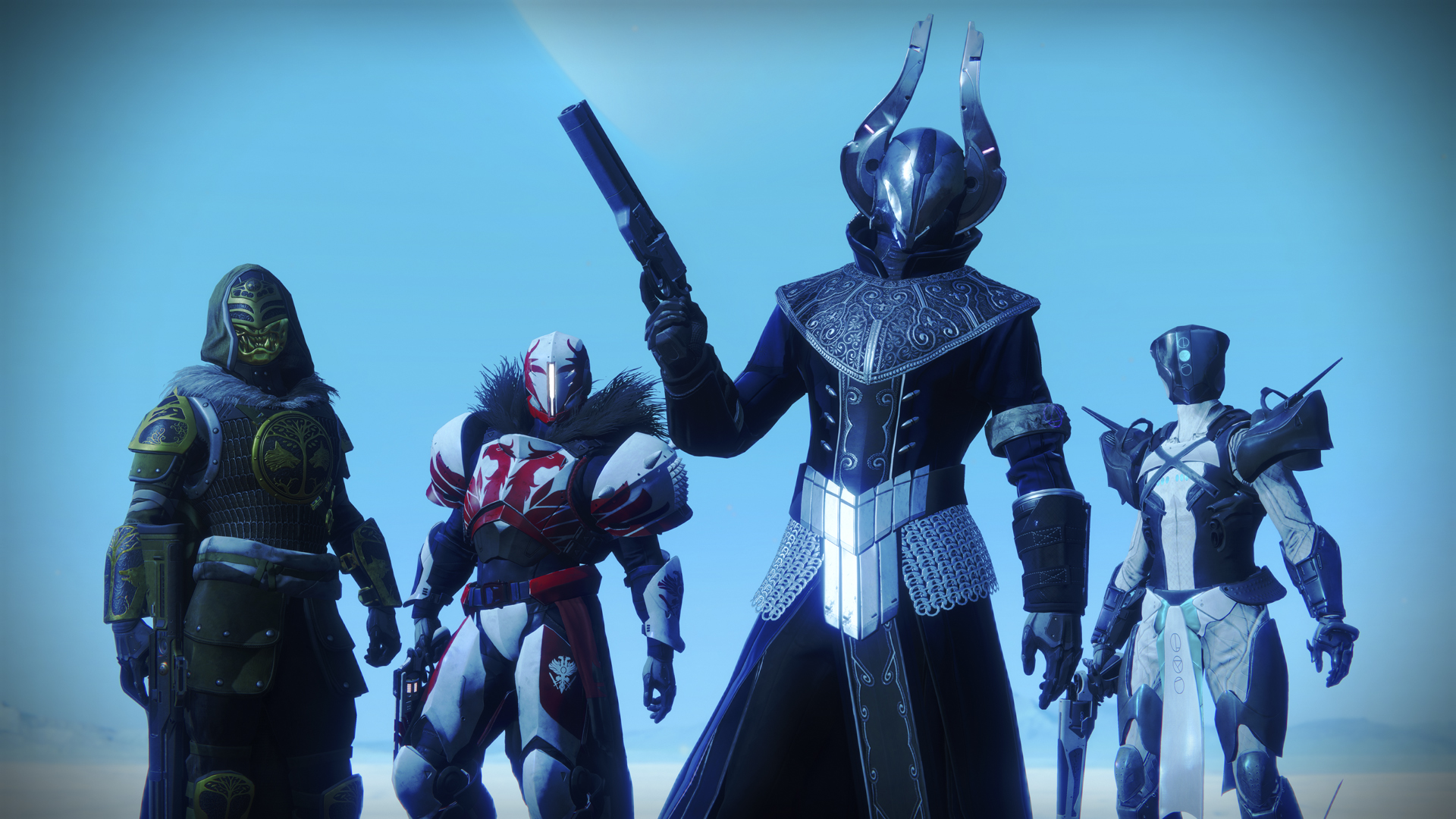
Yet many of us stuck with Destiny because, 1) the actual shooting aliens part has always felt sensational, and 2) over the course of the first game's three-year lifespan, substantial changes were implemented that improved the player experience (for example, weapons now all come with their perks already activated), and it's fair to say that towards the end of its life, those of us still playing were happy with how the core systems worked. Then came Destiny 2. This was the first full sequel, and as such Bungie took the opportunity to press reset on many of the fundamental systems, from the kind of loadouts players could equip to the structure of PvP matches and playlists.
The overarching philosophy behind those changes was to ensure that more players saw the cool stuff earlier. That's why your guardian automatically earns an exotic weapon just for passing the midpoint of the campaign, whereas in D1 you were unlikely to find one until after the story was done. In a recent episode of the Crucible Radio podcast, Destiny 2's senior gameplay designer Jon Weisnewski observed that the majority of gamers don't even finish the campaign in big shooters, so they wanted to be certain everyone would at least sample some of the best gear in the game.
The upshot of all this simplification, though, is a game that was weighted heavily towards the sizeable group of players who just want to have a good time with the story, maybe experience a little bit of the endgame and some PVP, and then move on. And there's likely a very good financial case from Bungie's point of view why this might be the correct audience to focus on, given the game's business model relies on people buying the base game plus season pass, and whatever can be made from the Eververse microtransaction store.
But what happens when those more transient players leave? One look at r/destinythegame provides an easy answer. The remaining players get mad. Rightly or wrongly, many of those who stuck around through the content droughts of Destiny 1 were expecting Destiny 2 to double-down on depth and customisation, rather than strip those things back. In their minds, these players kept Destiny alive during the dark times, only to be semi-abandoned for the sequel. They imagined Destiny 2 would ship with an entirely new set of exotic gear to collect, rather than having old items brought over. (A particularly cheeky move, given that one of the main narrative hooks was 'whoops, all your old stuff got blown up by this Ghaul guy.) Rather than struggling to find things to do, these players expected an endgame packed with a diverse set of meaningful activities that would make them want to login every day.
We found ourselves three months on from the console release, only now getting details of when to expect a balance patch
It may well be that no studio could make the exact game of those players' dreams. Having seen what happened during D1's content droughts, trying to maintain a steady stream of things for hardcore players to do was always going to be one of the biggest issues facing the sequel. Back in June I asked PC lead David Shaw how Bungie planned to keep hardcore players happy.
"One of the things that we’ve found is that the Destiny player consumes content at a rate that we just can’t [keep up with]," he said. "As fast as we can possibly make it, in the most optimal situation, still wouldn’t be fast enough. So we’re not only trying to improve our workflows—for the player benefit but for our own benefit as well—we’re also looking into ways of making the content that we’ve got more interesting, and continuing to evolve our endgame."
Which sounds great, and yet we found ourselves three months on from the console release, only now getting details of when to expect a balance patch. That's frustrating, seeing as it was apparent early that several weapons and perks were substantially over-performing in PVP, whilst some exotics are so bad that they've instantly become memes.
Spare a thought for the poor artist who worked on the Fighting Lion exotic grenade launcher, the power of which is directly inverse to how stunning it looks. I'm genuinely not sure I've pulled the trigger on a more underwhelming gun in any FPS, and too often it feels like the power fantasy of Destiny 1 has been sacrificed in order to ensure no one weapon or perk rises to dominance.
As I see it, Destiny 2's appeal to a broader demographic (I'm trying hard not to say 'casuals') hasn't resulted in more of them sticking around for longer. My friends who just played the story in Destiny 1 before moving on have done pretty much the same thing in Destiny 2. Again, it's anecdotal evidence, but my PS4 clan—which was full of committed raiders—has hemorrhaged members as they came to the same conclusion that there wasn't enough reason to play once they'd reached the 100-hour mark and collected most of the relevant gear. I can already see the same thing starting to happen in our PC clan.
The counterpoint, of course, is that $60 for 100 hours of entertainment sounds like the kind of value we usually dream about when it comes to triple-A games. And to be fair, if you go all the way back to the original Destiny's reveal ViDoc, it talked about making a game that would keep players interested over "50 to 100 hours, across a matter of months." Which is exactly what both Destiny games have delivered. Nonetheless, that isn't the dream which many players latched onto. They wanted this to be their forever game, which could be played to the exclusion of all else, and it's that disconnect which has caused so much of the recent angst.
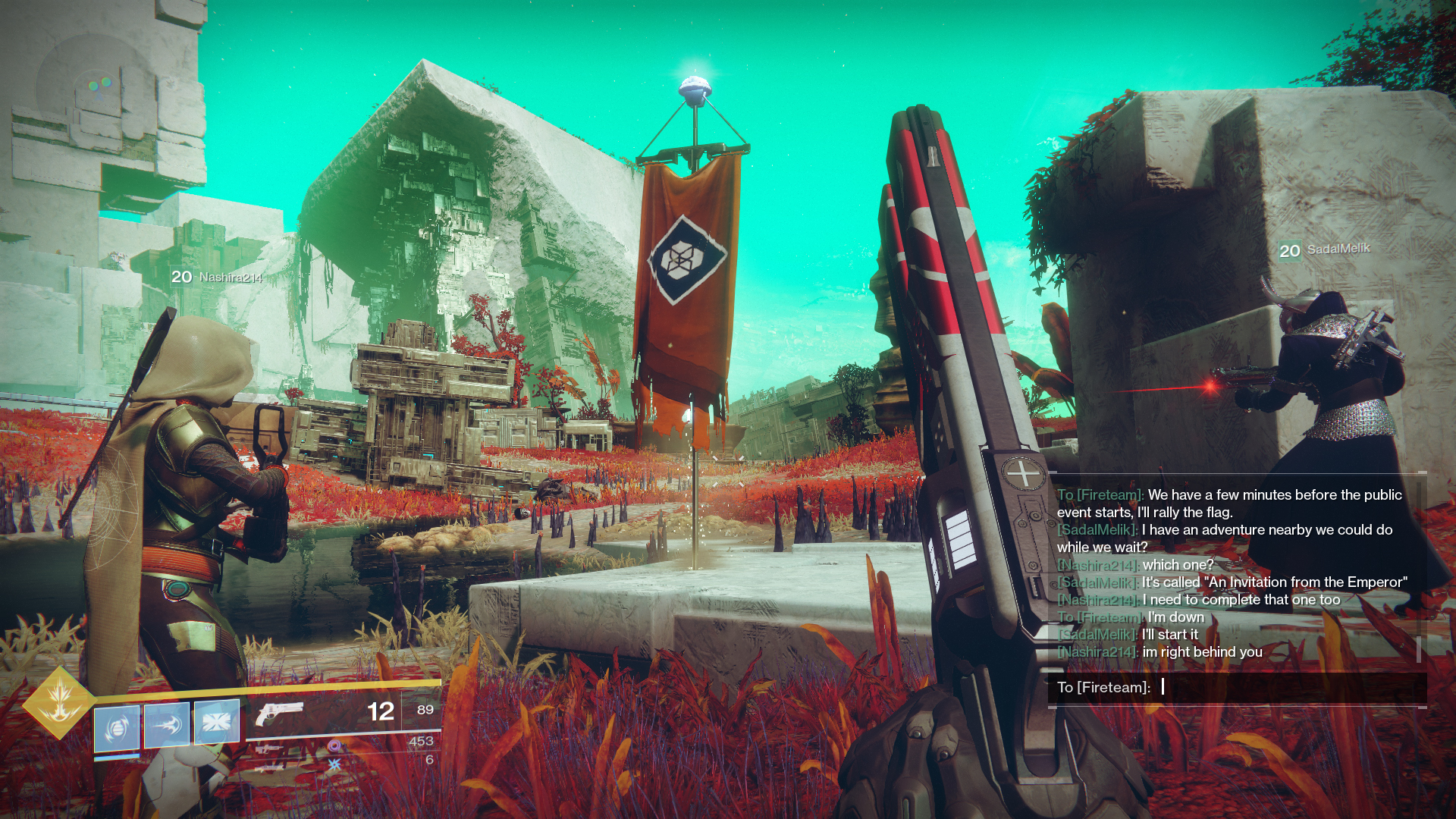
Yesterday's blog seemed to finally acknowledge the point about dedicated players feeling abandoned directly: "Going forward, Destiny 2’s post-launch game systems, features, and updates are being designed specifically to focus on and support players who want Destiny to be their hobby—the game they return to, and a game where friendships are made. We want Destiny to be a game that fits into your life, providing you with reasons to log in and play with your friends, clans, and families. We want Destiny to be a world you want to be a part of."
That sentiment was echoed by Smith on the official Bungie podcast, which also went live yesterday. "If you have a game that you love, you really want reasons to log in," he said. "And I think where we're at today is that Destiny 2 doesn't have enough excuses, or reasons, to play for those hobbyist players." Noseworthy agreed that, from the outset, Destiny 2's design team had "erred on the side of the more casual players."
On the next page, I want to get specific about which decisions and systems have caused the biggest issues, and how those might be fixed in the future—either by already announced improvements, or some more speculative solutions. To be clear, despite all the salt, this remains a community that desperately wants to see Destiny 2's endgame fixed.
The relationship between Bungie and its players is strange, and trust can be hard to come by, but given what happened over the course of the first game's life, I still think Destiny 2 will get where it needs to be eventually. But the ride is likely to be a long and bumpy one.
Next page: The problems that Bungie needs to solve.
With over two decades covering videogames, Tim has been there from the beginning. In his case, that meant playing Elite in 'co-op' on a BBC Micro (one player uses the movement keys, the other shoots) until his parents finally caved and bought an Amstrad CPC 6128. These days, when not steering the good ship PC Gamer, Tim spends his time complaining that all Priest mains in Hearthstone are degenerates and raiding in Destiny 2. He's almost certainly doing one of these right now.


